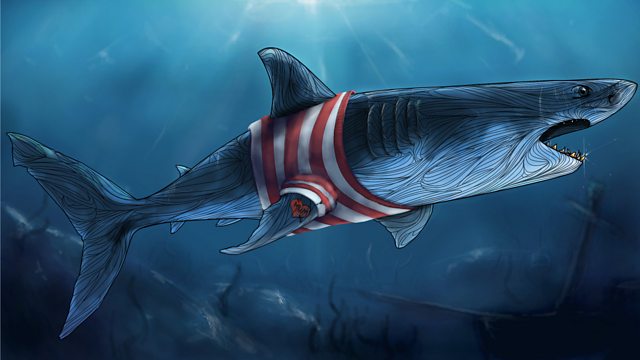Sharks
Brett Westwood examines our relationships with sharks; seen as deities in Pacific cultures and typecast as a fearsome, ruthless killer in Jaws, this ancient predator captivates us
Who can hear the word shark and not the music from the film Jaws? This 1975 film, based on a book from the previous year, is defined as a “watershed moment for sharks.” From being little thought about by most people sharks were suddenly propelled into the lime light as fearsome, ruthless killers whose intent was to harm us humans. An entertaining film became the death warrant for millions of sharks. Our terminology is not helpful.
We find it impossible to speak about sharks without using emotive language: seas are “infested,” sharks “menace” they “cruise around looking for a victim, they “invade” our swimming beaches etc. Crooks are “loan sharks.”
In Hawaiian culture they are often seen as protectors or brave fighters in battle.
We have a difficult relationship with sharks. We have traded their teeth and eaten their fins, so much so that millions are now killed annually for this delicacy for the aristocracy. Damien Hurst has tried to capture the fear of the shark in his famous tank, allowing the viewer to stand next to an open mouth without being in danger. We will always be challenged by this supreme predator, if we allow it to survive in the wild.
Last on
![]()
Help! Shark Quiz!
Find out if you have enough bite for shark life.
![]()
Fintastic facts about sharks
From sunbathing to cannibalism, 10 things worth knowing about sharks.
![]()
The World According to Shark
Natural Histories Comedy with David Schneider.
![]()
How Jaws misrepresented the great white
Series producer Mary Colwell writes about the legacy of Spielberg's film.
![]()
Sharks
Brace yourself for our collection of shark related tales.
Clips
-
![]()
Sharks have a 'conveyor belt of teeth'
Duration: 01:03
-
![]()
The World According to Shark
Duration: 01:31
-
![]()
The 'terrible impact' of Jaws
Duration: 01:43
-
![]()
Why was Jaws such a scary film?
Duration: 00:45
Oliver Crimmen

Oliver started at the Museum in 1993 as a Higher Scientific Officer, before becoming Curator in 1996.
He is a member of the British Record Fish Committee, which is responsible for ratifying British marine identifications and the Food Standards Agency’s Fish Expert Group.
Giovanni Aloi

In 2006, he founded Antennae, the Journal of Nature in Visual Culture. It is an international reference point for the debate on animals in the arts. He is the author of Art & Animals and is currently working on two monographs, one on taxidermy in contemporary art and another on plants in contemporary art, both due for publication in 2016.
Ian Fergusson

He is the BBC’s West Country and Formula One motor-racing weatherman and a Fellow of the Royal Meteorological Society.
Twitter: @fergieweather
Professor Dennis Kawaharada

He is the author of Storied Landscapes: Hawaiian Literature and Place and has written about traditional attitudes towards sharks in Hawaii.
He works with the Polynesian Voyaging Society which seeks to perpetuate the art and science of traditional Polynesian voyaging.
Richard Kerridge

Richard has also published books and articles about nature writing and other kinds of wild literature. He teaches creative writing, including nature writing, at Bath Spa University, and was a founder of the UK branch of the Association for the Study of Literature and Environment.
His work has appeared in Granta, and he reviews nature writing for The Guardian.
Twitter: @KerridgeRichard
Professor John Ó Maoilearca

His latest book – on animals, cinema, and philosophy – is entitled All Thoughts Are Equal: Laruelle and Nonhuman Philosophy.
Professor Adrian Peace

He has conducted extended research in Nigeria and Ireland. Recently, his research has focussed on political conflicts inside Australia and beyond over whales, dingoes and sharks.
The journal Australian Zoologist published his paper 'Man grabs shark with bare hands, blames vodka: On sharks, stereotypes, speciesism and the late Steve Irwin'.
Broadcasts
- Tue 9 Jun 2015 11:00BBC Radio 4
- Mon 15 Jun 2015 21:00BBC Radio 4
- Sun 27 Jun 2021 06:35BBC Radio 4
Featured in...
![]()
Under the Sea
Programmes about the deep.
![]()
Natural history on Radio 4—Natural Histories
A collection of programmes about natural history.
![]()
Sharks
Brace yourself for our collection of shark related tales.















